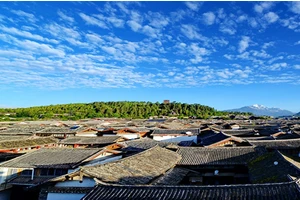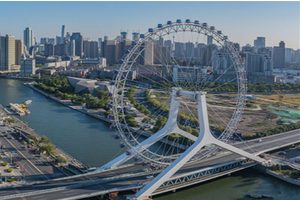Indonesian tourism attention
Matters needing attention in Indonesia tourism
First, respect local culture and customs.
Explanation:
1. Differences in cultural customs: Indonesia has diverse cultural backgrounds, and different islands have unique traditions and customs. During the trip, tourists should respect and abide by the local culture and customs to show politeness. For example, when visiting temples or other religious sites, you need to observe specific dress codes and etiquette.
2. Communication language: Indonesian is the official language of Indonesia, but English is also popular in tourist hotspots such as Bali. In order to better integrate into the local culture and experience in-depth tourism, tourists are advised to learn some basic Indonesian greetings and daily expressions.
Second, pay attention to safety issues.
Explanation:
1. Personal safety: Indonesia is a relatively safe tourist destination as a whole, but we still need to pay attention to some common safety issues, such as paying attention to the surrounding environment and avoiding carrying a lot of cash when going out at night.
2. Common sense of travel safety: When choosing tourism projects and activities, you should choose reputable travel agencies or institutions to avoid participating in illegal or unauthorized tourism activities. At the same time, it is also necessary to know the local emergency telephone numbers and help-seeking methods.
Third, pay attention to the natural environment and climate change.
Explanation:
Indonesia is rich in natural resources and diverse climatic conditions, and the weather in different regions changes greatly. Therefore, we should pay attention to the local weather forecast before traveling, and prepare corresponding clothes and sun protection measures according to the itinerary. At the same time, because Indonesia is rich in wildlife resources, tourists should avoid close contact with wildlife to protect themselves and animals.
In addition, tourists who travel to the seaside should pay more attention to the local marine species and swim in the prescribed sea area to avoid dangerous situations. At the same time, we should respect the natural environment and do not throw away rubbish and other wastes at will to protect the local ecological environment.
Indonesia is a multicultural country in Southeast Asia, with beautiful beaches, spectacular volcanoes and rich cultural heritage. If you plan to travel to Indonesia, here are some important considerations:
Visa and Entry Requirements: Make sure your passport is valid for a long time and check whether you need a visa. Citizens of some countries can get landing visa or visa-free entry, but it is best to confirm it in advance.
Health and vaccines: Before visiting Indonesia, you may need to get some vaccines, such as yellow fever, hepatitis B and rabies vaccines. In addition, carry anti-mosquito products to prevent dengue fever and malaria.
Travel insurance: Buy comprehensive travel insurance to cover medical emergencies, lost luggage and flight cancellations.
Local laws and customs: Understand and respect local laws and customs. For example, Indonesia is a country dominated by Muslims, so you should dress appropriately in public, especially in religious places.
Language barrier: Indonesian is the official language of Indonesia. English is usually widely used in tourist areas, but language barriers may be encountered in remote areas. It will be helpful to learn some basic Indonesian words and phrases.
Currency and consumption: The official currency of Indonesia is Indonesian rupiah (IDR). In big cities and tourist areas, credit cards are generally accepted, but in remote areas they may mainly rely on cash. Know the local currency exchange rate and exchange money in a reliable place.
Transportation: The transportation in Indonesia may be different from what you are used to. In big cities, be careful when using taxis or taxi services, and ensure that drivers use the meter. In remote areas, public transportation may be less developed, and private cars may need to be booked.
Food safety: It is a great pleasure to try local food, but pay attention to food safety. Avoid raw water and untreated food to prevent gastrointestinal diseases.
Natural disasters: Indonesia is located in the volcanic belt around the Pacific Ocean, and earthquakes and volcanic activities are common. Know the latest situation of the area you plan to visit and follow the suggestions of the local authorities.
Respect for the environment: Indonesia is rich in natural resources and biodiversity. As a responsible tourist, try to reduce the impact on the environment, don't leave garbage and don't destroy the natural landscape.
Security: Although most parts of Indonesia are safe for tourists, there are still criminal risks. Avoid carrying a lot of cash and conspicuous valuables, especially in crowded places.
Communication: It is usually convenient to use mobile phones and the Internet in Indonesia, but there may be restrictions in some remote areas. Consider buying a local SIM card to get better service.
Festivals and activities: There are many traditional festivals and activities in Indonesia, and there may be special traffic arrangements and changes in public order during these times. Know what may happen during your trip and plan your trip accordingly.
Emergency preparation: know the local emergency telephone numbers, such as police, ambulance and fire fighting, and keep the contact information of your embassy in Indonesia.
In a word, you can enjoy a wonderful journey in Indonesia if you are fully prepared, respect local culture and customs, and remain vigilant.
Prev: Adjustment of tourism law
Next: Tourists visit sb.






